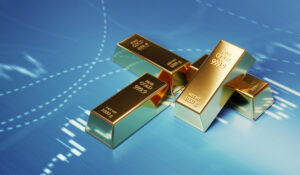Why Gold Is Still the Best Money
The comments below are an edited and abridged synopsis of an article by Doug Casey
It’s an unfortunate historical anomaly that people think about the paper in their wallets as money. The US dollar is, technically, a currency. A currency is a government substitute for money. But Casey says that gold is money.

Historically, many things have been used as money: Salt, cattle, seashells, cigarettes. So, money is simply a medium of exchange and a store of value.
Almost anything can be used as money, but some things work better than others; it’s hard to exchange things people don’t want, and some things don’t store value well. Over thousands of years, precious metals have emerged as the best form of money.
There’s nothing magical about gold. It’s just uniquely well-suited for use as money among the 92 naturally occurring elements available, in the same way aluminum is good for building aircraft, or uranium is good for nuclear power.
There are good reasons for this, and they are not new. Aristotle defined five reasons why gold is money in the 4th century BCE. Those five reasons are as valid today as they were then.
The definition of money is something that functions as a store of value and a medium of exchange. Government fiat currencies currently function as money, but they are far from ideal. What are the characteristics of a good money? A good money must be: Durable, divisible, consistent, convenient, and intrinsically valuable.
There’s a sixth reason Aristotle should have mentioned, but it wasn’t relevant in his age: Gold can’t be created out of thin air.
These are the reasons why gold is the best money. It’s not a gold bug religion, nor a barbaric superstition. It’s simply common sense. Gold is particularly good for use as money, just as steel is good for buildings and paper is good for books. If you try to make aircraft out of lead, or money out of paper, you’re in for a crash.
That gold is money is simply the result of the market process, seeking optimum means of storing value and making exchanges.
